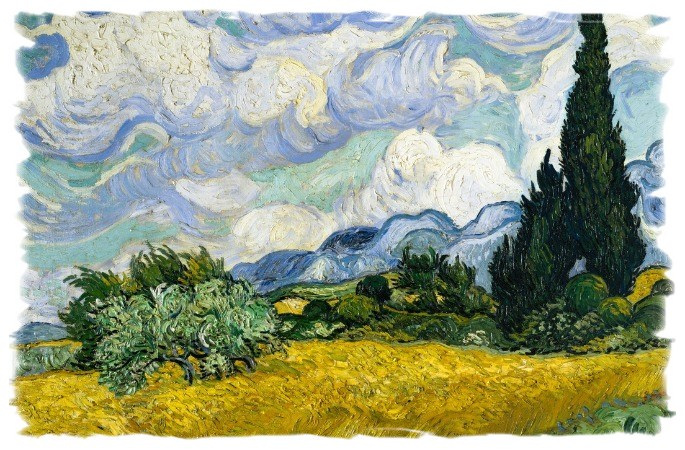After six decades of a love affair with words in both my languages, it’s time to confess that I have never actually had a mother tongue. My mother was a child of an interracial marriage between a Eurasian woman (with a Portuguese / Malay heritage) and a Sikh man, and I am the product of an interracial marriage between my mother and my father who was Gujarati. My parents met as colonial students, from different sides of the globe, in post war Britain. Like my maternal grandparents, the language they had in common was the language of their colonial masters—the shackles and embrace of English.
My mother grew up speaking English, Malay and Cantonese. English was the language used between her parents and in her family home. It was also the official language of the Eurasian (Serani) community in the British colony of Malaya. The real mother tongue of the Eurasian community is Kristang (a creole of Portuguese and Malay) which my mother never spoke. My grandmother (Isabelle Monteiro) could speak Kristang, but it was a hidden language shared with her Eurasian relatives behind closed doors. My mother spoke Malay because it was the lingua franca of her country and the language she learnt at school, but she was actually more fluent in Cantonese because she was raised and cared for by Chinese amahs. She remained a formidable force in Chinese restaurants where she would terrorise unsuspecting waiters with her rapid-fire colloquial Cantonese. I am sure there are yum cha waiting staff all over Sydney who can tell the story of a small brown woman demanding specialty dishes reserved for Chinese patrons.
My Sikh grandfather was educated in England and spoke pristine English. He changed his name from Ujagar Singh to Lawrence Stanley when he married my Catholic grandmother. No history is attached to this name. It was picked out like a silk cravat from a bundle of ragged scarves. All stories about my grandfather are dipped in mythology so we are left with Lawrence Stanley who made his fortune in Malaya and became a wealthy owner of rubber estates and tin mines. He was an adviser to the British, played the stock market with astonishing success and was an engineer of repute. He never spoke a word of his mother tongue, Punjabi, to his children. After the war he sent his daughters to Queen’s College in London, and my mother went on to study English literature at Nottingham University.
My father grew up speaking Gujarati (his mother tongue) and learnt English, as a schoolboy in Kenya, during the time of British rule. He devoured the English text on billboards and shop signs, he memorised labels on tins and jars from across the Empire. He topped his class at school and won a scholarship to study Medicine at Glasgow University. He supplemented his meagre allowance by winning cryptic crossword competitions in British newspapers and developed a lifelong delight in the English language. He would throw words at me like shining balls (‘dirigible’, ‘filbert’, ‘codswallop’, ‘penumbral’), and I would catch and bounce them happily as we puzzled over cryptic clues or discussed the latest contenders for the Booker Prize.
My mother had no interest in the Booker Prize, she cherished the canon. Her favourite poets were Donne, Keats, Hopkins, Wordsworth, Browning, Yeats and Auden. She was always open to fine writing, and when we moved to Australia she fell in love with the work of Judith Wright, Randolph Stowe, Patrick White and David Malouf. Their books were added to the list of classics by Shakespeare, Austen, Lawrence and Shaw that she read and reread throughout her life.
My childhood and teenage years were split between Singapore, London and Sydney. I spoke English in three different accents. I grew up in a world of Rupert Bear, Eeyore, Mrs Tiggy-Winkle and Mary Poppins with the odd appearance of characters in Malay folklore (Sang Kancil or Hang Tuah) and later on all of the children from Seven Little Australians. My conversation with relatives and friends in Singapore and Malaysia was smattered liberally with Malay and peppered lightly with Tamil, Cantonese and Hokkien. I could slip into Singlish or Cockney at the drop of a hat. In my teens, I successfully flattened every vowel to match the voices of my Australian classmates.
While English was my first language, I studied Malay as my ‘mother tongue’ at primary school in Singapore (where the choices were Malay, Chinese or Tamil). As the child of a Eurasian and North Indian mixed marriage, I had no other option. In many ways, Malay is the closest language that I have to a mother tongue. It is a fragile link to the voices of my ancestors (those Malay women who married Portuguese sailors in Malacca over five hundred years ago). The soft cadences, beautiful idiom and elegant grammar of this language speak to something buried deep in my heart. I have almost no knowledge (except for a few food words) of either of the Indian languages (Gujarati and Punjabi) of my heritage.
We migrated to Australia in the 1970s just as I entered my teens. If you looked different or sounded different in this country, people assumed you had another mother tongue. Many migrant children actually do have a mother tongue other than English, but I did not. This didn’t stop me pretending that I did because it was easier than explaining my complex background to other people. I got away with my fake identity because speaking English is expected of all of us when we come to this monolingual country. Every migrant teenager knows that if you come from a different cultural group and speak another language fluently, it is better to answer your parents in English and not in ‘gobbledygook’. It is safer not to raise suspicion by uttering weird sounds that emphasise your otherness.
I was careful never to utter a syllable of my other language in front of my Anglo school friends, but I always hankered for the Malay of my childhood. When I left school, I decided to study Indonesian (which is almost the same language as Malay) at the Australian National University. I went on to teach this language and English, for nearly three decades, in Canberra schools. If you are brown and speak Indonesian, many Anglo Australians assume that you are Indonesian. Sometimes it was just too much trouble to clarify this for them. For a while my ‘mother tongue’ (as far as teaching colleagues and school principals were concerned) was Indonesian. I had an Honours degree in English, which was my true passion, but no one ever considered that it could have been my mother tongue.
When I retired from teaching and became more serious about a life as a writer in Australia, I realised that things hadn’t changed at all. If you are brown and write poetry in English, many Anglo Australians assume that you would rather write and perform your work in your mother tongue. Well-meaning action groups and individuals want to organise and sometimes to capitalise on another way for non-Anglo Australians to be included, and for diversity to be celebrated, so new spaces (such as multilingual poetry showcases) are created for poets with mother tongues other than English. This kind of poetry may find a niche audience, but it is regarded as an exotic experiment, a kind of poetic curiosity, and as such it is not subjected to the same rigour as poetry written in English.
Poets and writers of worth in this country must write in English. The English that we use is richly flavoured with the sound of our narratives, our cultural history and (sometimes) our other languages. In his essay, ‘Strangers at Home’, the Indigenous Australian writer Kim Scott talks about the way in which Aboriginal English took over the story in his novel, True Country. He describes this process as being ‘claimed by a heritage.’
… some of my characters spoke a version of what is termed “Aboriginal English.” … that Aboriginal voice, and those Aboriginal characters, took over the story. The novel correspondingly moves from first person to a collective third person and thus, in the form of its telling, suggests something of being claimed by a heritage.
I may not have a mother tongue but, like Kim Scott, I am ‘claimed by my heritage’ every time I put pen to paper or tap on a keyboard. The Malay words of my ancestors sing sweetly in my head and heart—but the language that truly tells my story is English. My parents were British subjects and English was the only language that they shared. It provided the lens through which they saw each other and the bricks for building a life together. It is how they knew the world around them and the most internal parts of themselves. It formed their values, their ideas and their imagination. It was the language that they bestowed on their children. English was not their mother tongue. It was a language that colonised and freed them—a yoke and a gift.
References
Scott, Kim. 2007. ‘Strangers at Home’. In Mary Besemeres and Anna Wierzbicka (eds) Translating Lives: Living with Two Languages and Cultures. St Lucia: University of Queensland Press. 1–11
Scott, Kim. 1993. True Country. Fremantle: Fremantle Arts Centre Press



